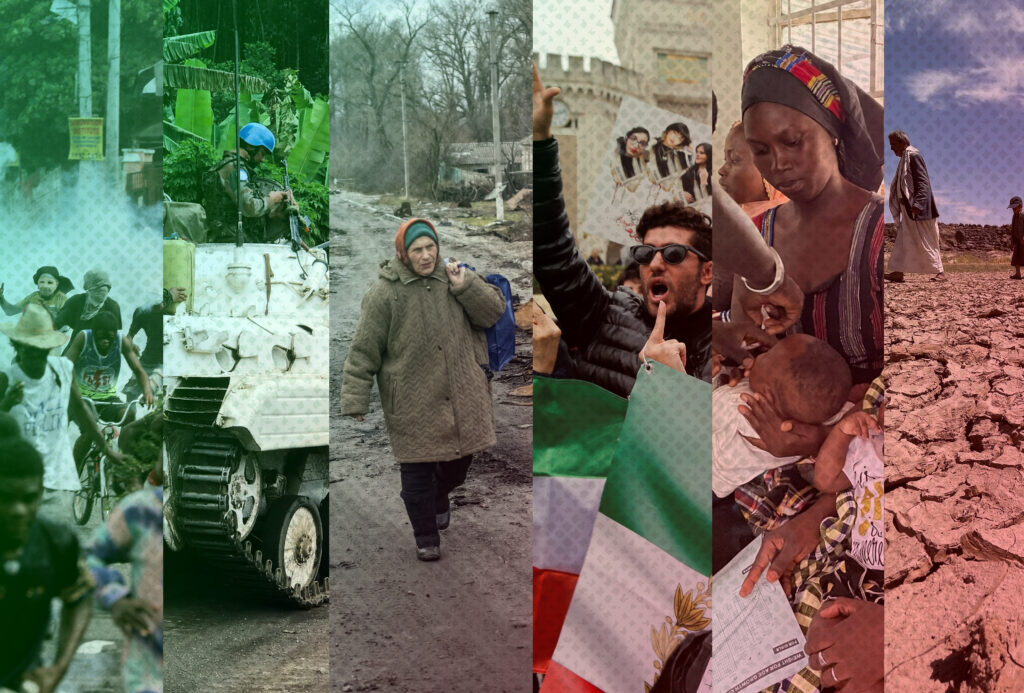The Syrian crisis, which began in 2011, has become one of the most severe global humanitarian emergencies. With millions of Syrians displaced and widespread destruction, the crisis has had a significant humanitarian impact. The conflict has also led to geopolitical consequences, shaping the dynamics of the region and impacting global politics and security. Power struggles between Saudi Arabia and Iran have intensified sectarian tensions, while the rise of non-state actors like ISIS has posed a threat to global security. Additionally, the influx of Syrian refugees has strained neighboring countries and sparked a political backlash in Europe. The international response has been ineffective, prolonging the suffering of the Syrian people.
The Ongoing Syrian Crisis: A Global Humanitarian Emergency and its Geopolitical Consequences
Introduction
The Syrian crisis, which began in 2011, has turned into one of the most severe global humanitarian emergencies of our time. The civil war in Syria, characterized by a complex web of global and regional interests, has led to the displacement of millions of Syrians, widespread destruction, and loss of countless lives.
Humanitarian Emergency
The humanitarian impact of the Syrian crisis cannot be overstated. Over 13 million Syrians have been displaced, with millions seeking refuge in neighboring countries and beyond. The conditions faced by these displaced individuals are often dire, with limited access to food, clean water, healthcare, and education. The crisis has led to the loss of over half a million lives, including many innocent civilians caught in the crossfire.
The scale of destruction caused by the conflict is staggering. Infrastructure, including hospitals, schools, and homes, has been reduced to rubble in many parts of the country. The ongoing violence and lack of access to basic amenities have resulted in a significant humanitarian crisis, with millions in urgent need of assistance.
Geopolitical Consequences
The Syrian crisis has far-reaching geopolitical consequences that have shaped the dynamics of the region and impacted global politics and security. The conflict has become a battleground for various global and regional powers, each with their own interests and alliances.
Regional Power Struggles
The Syrian crisis has exacerbated existing power struggles in the Middle East. The conflict has pitted Saudi Arabia and its allies against Iran, with the two powers backing opposing sides in the war. This rivalry has intensified sectarian tensions across the region, with the Shia-Sunni divide becoming more pronounced. The involvement of regional powers has not only fueled the conflict but has also hindered diplomatic efforts to find a peaceful resolution.
Rise of Non-State Actors
The power vacuum created by the Syrian crisis has allowed non-state actors, such as ISIS, to gain significant ground. The extremist group took advantage of the chaos to establish a self-proclaimed caliphate and commit horrific acts of violence. The emergence and spread of ISIS have not only exacerbated the humanitarian crisis but have also posed a significant threat to global security.
Refugee Crisis
The influx of Syrian refugees has put enormous strain on neighboring countries and has had a significant impact on the political landscape of Europe. Countries like Turkey, Lebanon, and Jordan, which have taken in millions of refugees, face immense economic, social, and security challenges. Furthermore, the refugee crisis has sparked a political backlash in Europe, with the rise of far-right movements and anti-immigration sentiments.
International Response
The international community has struggled to effectively address the Syrian crisis. Numerous attempts at ceasefire agreements and peace talks have failed to bring a lasting solution. The Security Council has been divided, with veto-wielding powers preventing decisive action. The lack of unity and political will among global actors has hindered the resolution of the crisis, prolonging the suffering of the Syrian people.
Conclusion
The ongoing Syrian crisis is not only a severe humanitarian emergency but also a geopolitical issue with far-reaching consequences. It has exacerbated regional power struggles, allowed non-state actors to thrive, and triggered a massive refugee crisis. Effective international cooperation and a comprehensive approach that addresses the root causes of the conflict are essential to alleviate the suffering of the Syrian people and restore stability to the region.
